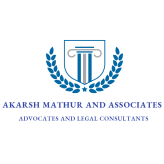
Shareholder disputes can be a major challenge for any company, and can often lead to costly and time-consuming litigation. However, with the right legal counsel, it is possible to resolve shareholder disputes in a way that is fair, efficient, and minimizes the impact on the company. In this article, we will explore the role of legal counsel in resolving shareholder disputes, including the various approaches to dispute resolution, such as mediation, arbitration, and litigation – alongside the essential incorporation of legal frameworks such as corporate laws, rules, and acts, and the importance of having a well-drafted shareholders’ agreement.
Approaches to Dispute Resolution
There are several approaches to resolving shareholder disputes, each with its own advantages and disadvantages. The choice of approach will depend on the specific circumstances of the dispute and the preferences of the parties involved.
There are several approaches to resolving shareholder disputes in India, including mediation, arbitration, and litigation. The choice of approach will depend on the specific circumstances of the dispute and the preferences of the parties involved.
Mediation: Mediation is a process in which a neutral third party helps the parties to reach a settlement. The mediator does not make a decision or impose a solution, but rather facilitates discussions and negotiations between the parties. Mediation is often a cost-effective and efficient way to resolve disputes, as it allows the parties to reach a mutually acceptable solution without the need for litigation. In India, mediation is governed by the Mediation and Conciliation Act, 2002, which provides a framework for mediation and conciliation proceedings. The new Mediation Bill 2023 which has passed both houses, is also important, and a welcome step, but we will cover that in a separate article.
Arbitration: Arbitration is a process in which a neutral third party hears evidence and arguments from both sides and makes a binding decision. Arbitration can be a faster and less expensive alternative to litigation, and can also provide greater flexibility in terms of the scope of the dispute that can be resolved. In India, arbitration is governed by the Arbitration and Conciliation Act, 1996, which provides a framework for arbitration proceedings.
Litigation: Litigation is the process of taking a dispute to court. Litigation can be a lengthy and expensive process, but it may be necessary in some cases, such as when there are complex legal issues at stake or when one party is unwilling to compromise. In India, litigation related to shareholder disputes is typically heard in the Company Law Board (CLB) or the National Company Law Tribunal (NCLT), which are specialized courts that deal with company law matters.
The Role of Legal Counsel
Legal counsel plays a crucial role in resolving shareholder disputes. A skilled lawyer can help the parties to understand their rights and obligations, and can provide guidance on the various approaches to dispute resolution. Legal counsel can also help to negotiate a settlement, draft a shareholders’ agreement, or represent the parties in court.
- Guiding Through Legal Complexities: Shareholder disputes encompass intricate corporate laws, regulatory intricacies, and contractual obligations. Legal counsel provides invaluable expertise, helping clients comprehend their rights, liabilities, and obligations within the legal framework.
- Strategic and Informed Advisory: Legal experts offer tailored advice, evaluating legal merits and potential risks. Their strategic counsel guides clients in choosing between negotiation, mediation, arbitration, or litigation, keeping the unique dispute dynamics in mind.
- Objective Expertise: Impartiality is key in emotionally charged disputes. Legal counsel provides an unbiased perspective, enabling rational decisions about the most appropriate resolution path.
- Drafting Precision and Legality: Legal professionals create precise documents—demand letters, settlement agreements, and court filings—ensuring their compliance with legal standards, and safeguarding clients’ interests.
- Effective Representation: In mediation, arbitration, or litigation, legal counsel represents clients adeptly. Their advocacy skills come to the fore in negotiations, arbitration hearings, and court proceedings, advocating for clients’ positions.
In India, the legal framework for shareholder disputes is governed by various laws and acts, including the Companies Act, 2013, the Securities Contracts (Regulation) Act, 1956, and the Arbitration and Conciliation Act, 1996. It is important for legal counsel to have a thorough understanding of these laws and acts in order to provide effective representation.
The Importance of a Well-Drafted Shareholders’ Agreement
A well-drafted shareholders’ agreement can help to prevent shareholder disputes from arising in the first place. A shareholders’ agreement is a contract between the shareholders that sets out their rights and obligations, as well as the procedures for decision-making and dispute resolution.
A well-drafted shareholders’ agreement should include provisions for:
The management structure of the company
The rights and responsibilities of the shareholders
The procedures for decision-making and dispute resolution
The rights of first refusal and pre-emptive rights
The restrictions on the transfer of shares
The procedures for the valuation of shares
The procedures for the payment of dividends
A shareholders’ agreement can also include provisions for the resolution of disputes, such as mediation or arbitration. These provisions can help to prevent disputes from escalating into costly and time-consuming litigation.
Conclusion
Shareholder disputes can be a major challenge for any company, but with the right legal counsel, it is possible to resolve them in a way that is fair, efficient, and minimizes the impact on the company. The role of legal counsel in resolving shareholder disputes is crucial, as they can provide guidance on the various approaches to dispute resolution, negotiate a settlement, draft a shareholders’ agreement, or represent the parties in court. By working closely with legal counsel, companies can ensure that shareholder disputes are resolved in a way that is fair, efficient, and minimizes the impact on the company.

